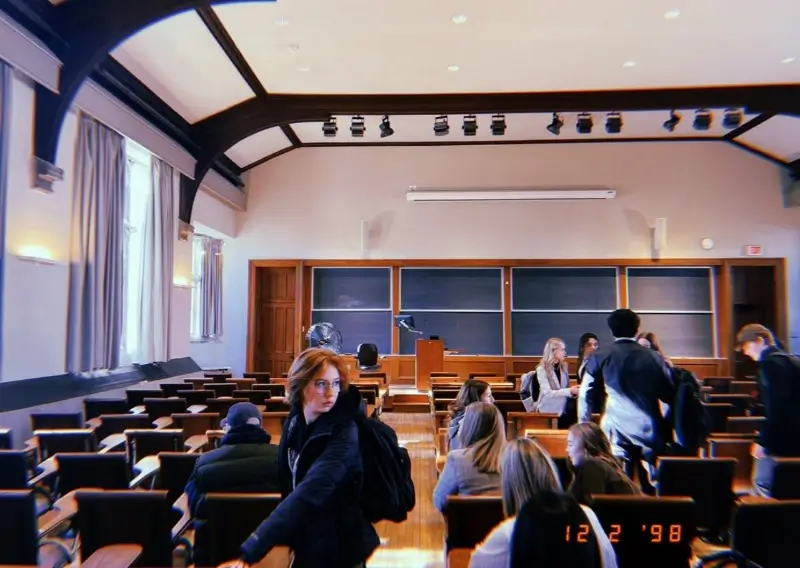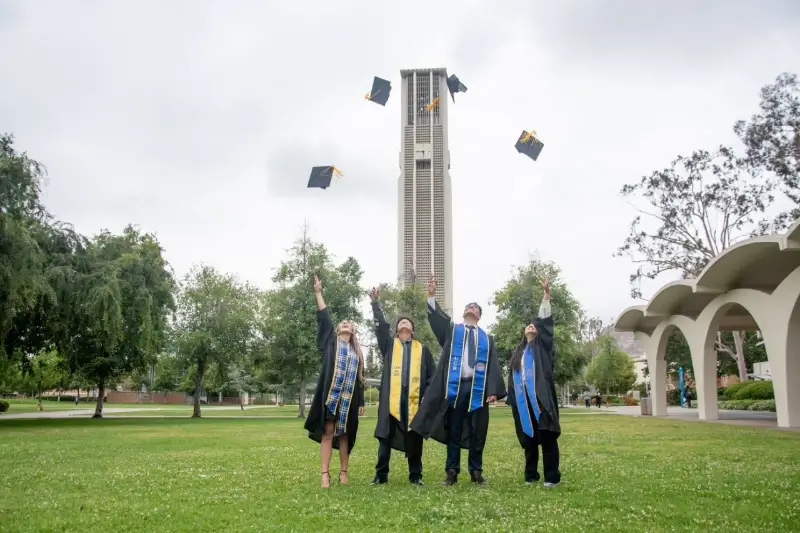Top 3 Law Schools in Minnesota in 2025


Attending a quality law school is crucial. Law schools in Minnesota are well-positioned to offer you an education that matches your enthusiasm for legal professions.
You can find law schools anywhere, but after deciding on the location, you must also factor in the programs, faculty, and resources offered. A good law school should provide you with the proper curriculum and structure to push your limits while also setting you up for great success through practice-based experience.
In today's article, I will discuss the best law schools in Minnesota. As a leading authority on college navigation and rankings, here at Bold.org, we can help you compare the top law schools in Minnesota to help you make the right decision for you. I will cover everything from the top schools in the state to what to consider when choosing a law school and leave you with a brief overview of how to become a resident of Minnesota.
Law school isn't cheap, even for in-state students. Create a free Bold.org profile to access hundreds of scholarships and fund your education all the way through your 3L!
Get Matched to Thousands of Scholarships
Create your Bold.org profile to access thousands of exclusive scholarships, available only on Bold.org.
Create Free ProfileTop Law Schools in Minnesota
Minnesota is home to three ABA-accredited law schools, making your chances of getting into law school very competitive. These law schools offer rigorous and practice-based curriculums designed to provide students with an overall comprehensive education, as well as specialized training in areas including but not limited to:
- health law
- business law
- intellectual property law
Minnesota's law schools prepare students for a future in legal studies through experiential learning opportunities like clinics, externships, and simulation courses. These practices give law students hands-on training to teach them what to expect in a real courtroom setting. They also provide blended learning environments for students.
Let's discuss each law school and what you can expect as a Minnesota law student. The statistics below are sourced from U.S. News and World Report.

#1 University of Minnesota Law School
- Location: the Twin Cities, MN
- Tuition: $48,964 (in-state); $58,396 (out-of-state)
- Median Undergraduate GPA: 3.85
- Median LSAT: 168
According to U.S. News and World Report, the University of Minnesota Law School (UMNL) is the #1 law school in Minnesota, offering students top programs in areas like environmental law, health law, intellectual property law, and business law.
However, UMN Law School is particularly known for its strong emphasis on public law and policy that provides students with training in several clinics like the Civil Rights, Appellate, Economic Justice Clinic, Environmental Clinic, and the Human Rights Center, as well as externships that allow students to work in these fields.
However, the faculty is what makes UMN Law special. The school employs educators with wide-ranging expertise that provides students with an academically rich and knowledgeable support system. Professors are skilled in integrating law theory and practice. Students planning on attending UMN Law should expect a quality education and a solid set of resources that can help push their futures toward success.
Create Your Free Profile to Apply for Scholarships Today!#2 Mitchell Hamline University School of Law
- Location: St. Paul, MN
- Tuition: $52,620 (full-time), $38,280 (part-time)
- Median Undergraduate GPA: 3.26
- Median LSAT: 154
Mitchell Hamline School of Law was formed in 2015 when William Mitchell College of Law and Hamline University School of Law merged into one school. This union has shaped Minnesota’s legal educational system, creating one of the top law schools in the Midwest for law students. This school's application costs $0 for both full-time and part-time enrollees, making it affordable and accessible for students to apply.
Mitchell Hamline is known for its emphasis on programs in dispute resolution, health law, and legal technology. It offers a specialized Dispute Resolution Institute, which is nationally recognized and offers new ways of delivering justice.
Hamline Mitchell offers 17 clinics, including the Mediation Clinic, Domestic Violence Clinic, and the Health Law Clinic. These clinics help students gain hands-on experience in legal situations that serve the community. Students can expect practical training and innovation when attending Mitchell Hamline School of Law.
#3 University of St. Thomas School of Law
- Location: Minneapolis, MN
- Tuition: $48,379 (full-time)
- Median Undergraduate GPA: 3.62
- Median LSAT: 155
Ranked in the top 100 law schools in the United States, the University of St. Thomas School of Law is known for its strong community and commitment to public service. It is also known to be a more affordable law school compared to other Minnesota law schools.
However, to be considered for the LL.M. in U.S. Law program, students must have a law degree from a law school outside of the U.S. and demonstrate proficiency in the English language.
St. Thomas Law has notable programs in family law, criminal law, and business law. Like the other law schools, St. Thomas also emphasizes practical training with experiential learning practices through several clinical opportunities, including the Community Justice Project, Criminal and Juvenile Defense Clinic, and Immigration Law Practice Group, as well as legal externships and mentorships.
Students can expect a supportive learning environment that fosters professional growth and opportunities to engage with experienced mentors and practitioners from the University of St. Thomas School of Law.
Bonus: All students admitted to the LL.M. in U.S. Law program are automatically considered for generous scholarships that don't require a separate application.
Attending school in Minnesota? Check out our Minnesota scholarships!
Law School Admissions and Requirements
ABA-accredited law schools in Minnesota require students to complete a minimum of 90 credits to graduate and pass the bar exam to become licensed attorneys in Minnesota.
Students must include a personal statement and letters of recommendation in their applications if they want to submit a complete and polished law application.
For more tips, check out our blog, How to Get Into Law School.

What to Consider When Choosing a Law School in Minnesota
Choosing the right university or college is challenging, but it doesn't have to be stressful if you know what you want. Here are some things to consider when choosing a law school in Minnesota:
- Accreditation and reputation
- Location
- Bar passage rates
- Cost of attendance and financial aid
- Curriculum and specialization
- Clinical and practical opportunities
- Faculty and facilities
- Alumni network
- Post-graduation employment opportunities
Many Minnesota law school graduates go on to become leaders in the legal profession, working as judges, prosecutors, and public defenders. Knowing the kind of education you deserve is the first step, and these considerations help you decide the school for you so that you can be on your way to becoming a top lawyer in Minnesota.
For funding options, visit our scholarship page to find scholarships tailored for law students.

Becoming a Minnesota Resident
To become a Minnesota resident, you must demonstrate both physical presence in the state and intent to remain permanently. Here's how it works:
- You must live in Minnesota for at least 12 consecutive months (or at least 183 days for tax purposes)
- Obtain a Minnesota driver’s license or state ID card (must be obtained within 60 days of arrival)
- Obtain a registration card to vote
- Provide proof of employment or income earned in Minnesota
Establishing clear ties to the state early, like housing, employment, and community involvement, is essential to prove your residency. This planning will secure your residency and help avoid any issues in the future.
For more information on how to become a Minnesota resident, check out the Department of Revenue website.
If you aren't already attending law school and are still looking for scholarships, check out this guide on how to pay for law school.

Frequently Asked Questions About Law Schools in Minnesota
What is the best law school in Minnesota for me?
"The best" school is subjective according to interests and goals. The best law school for you should be based on what the school offers you.
The best school should align with your interest in legal studies and support your career goals. I suggest researching your top choice and comparing their offerings (e.g., courses, specializations, clinics, internships, externships, etc).
Are law schools in Minnesota expensive?
Yes, law schools in Minnesota can be expensive, but the costs vary depending on the institution and whether you are a state resident or receiving out-of-state tuition. Generally, law school tuition costs in Minnesota can range from $35,000 to $60,000 a year. Costs can also differ depending on residency and part-time/full-time enrollment, and they often do not consider living expenses. For funding options, I suggest looking for scholarship options and applying for financial aid.
What can I expect as a law student in Minnesota?
Minnesota law students can expect a legal education with learning environments that support their career objectives, ranging from clinic opportunities in Criminal Law to Health Law. Students can also expect top legal educators in the classroom who will provide them with expertise and guidance in their specialized areas of law studies.
Have more questions about law school? Check out our Scholarship Blog, which is home to hundreds of articles written specifically for students.